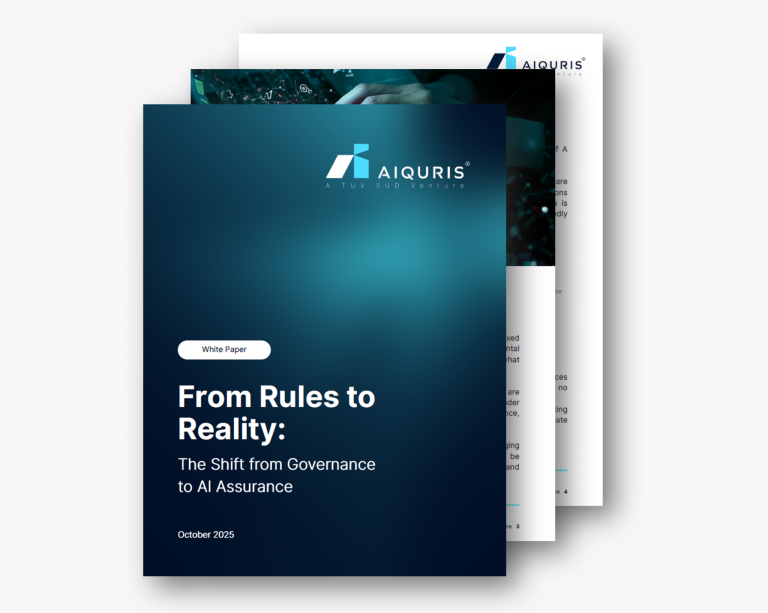The oil and gas sector is at a pivotal moment as it integrates artificial intelligence (AI) technologies into its operations. In a recent podcast discussion between Andreas Hauser, CEO and co-founder of AIQURIS ®, and David Mugridge, a former Royal Navy officer focused on offshore energy operations, they explored how AI can address safety, governance, and efficiency challenges in this high-risk sector. The full conversation can be accessed here.
The Role of AI in Enhancing Safety
One significant advantage of AI implementation in the oil and gas industry is its potential to reduce human error, which accounts for approximately 75% of incidents, accidents, fatalities, and injuries 1. By effectively reducing these errors, organizations can save costs associated with accidents and operational disruptions. As noted by David Mugridge, “AI can help us identify risks we may not have considered and force us to reappraise what we’re doing operationally. Leveraging AI-driven analytics allows companies to detect anomalies, predict equipment failures, and ultimately create safer working environments.
Integrating AI into risk management could potentially save the oil and gas industry up to $18 billion annually by improving safety outcomes 3. Furthermore, AI’s predictive capabilities enable proactive responses to emerging risks, significantly enhancing AI Safety in Oil and Gas operations.
Balancing Human Oversight and Automation
While AI holds immense promise, it’s vital that it complements rather than replaces human decision-making. While AI holds immense promise, it is vital that it complements human decision-making rather than replacing it. Hauser and Mugridge emphasised maintaining accountability within AI systems. Mugridge stated, “We shouldn’t delegate or abdicate our responsibilities when making a decision to AI. What we should do is delegate to AI part of the process that better informs us” (Podcast). This balanced approach ensures that crucial decisions remain in trained professionals’ hands while benefiting from AI’s analytical capabilities, reinforcing effective AI Risk Management in Oil and Gas.
The Importance of Governance and Regulation
Establishing strong governance frameworks is essential for fostering trust and mitigating associated risks in the evolving landscape of AI in the oil and gas industry. International regulations such as the EU AI Act emphasise ethical standards, transparency, and accountability in AI usage 4. Mugridge asserted, “At this stage of the rollout and evolution of AI, it’s absolutely fundamental that we know what we’re getting, and we know where the risks are to better inform us” (Podcast).
The Middle East as a Leader in AI Adoption
Countries like Saudi Arabia and the UAE are positioning themselves as leaders in AI adoption within the oil and gas sector. These nations invest heavily in innovative solutions aimed at enhancing sustainability and safety. Mugridge remarked, “The appetite here is not for this to become a Klondike. This is actually for this industry to be even more sustainable and safe” (Podcast). Such initiatives highlight the implications of the Middle East’s leadership on global trends in AI integration.
AI’s Role in Driving Efficiency and Reducing Costs
Beyond safety improvements, AI is revolutionising efficiency and productivity across upstream and downstream operations. According to the podcast, AI impacts capital expenditures (CAPEX), operational expenditures (OPEX), and overall productivity gains. Achieving these benefits will require addressing challenges such as workforce training and adapting existing processes to integrate AI effectively. As Hauser pointed out, “AI impacts CAPEX, OPEX, efficiency, and productivity gains. It’s a game changer across the industry” (Podcast).
In conclusion, the transformative role AI can play in enhancing safety, driving efficiencies, and ensuring proper governance in the oil and gas industry cannot be overstated. AI Risk and Management tools, like AIQURIS ®, are instrumental in helping companies identify where risks may lie in their AI systems, thus guiding them through this complex transition. For those interested in gaining a deeper understanding of these critical discussions, listen to the full podcast here.



